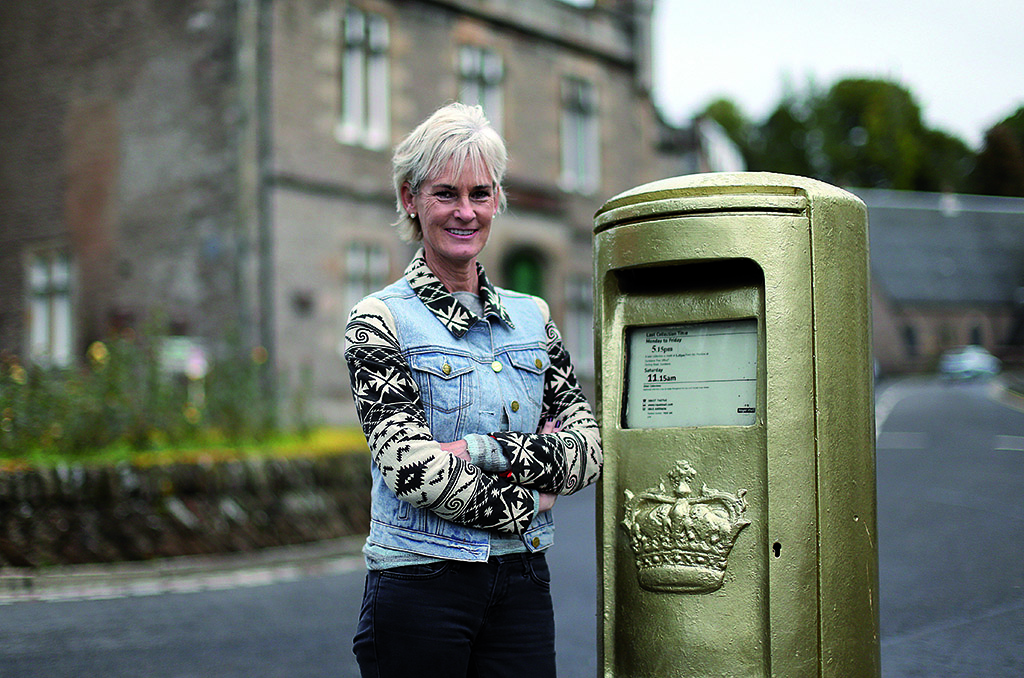
10 of Scotland’s finest ladies and lords of the rings
There’s just under a year to go until the 2020 Olympics begin in Tokyo.
As the clock ticks down the days, we take a look back at the ten of the greatest Scottish Olympians of all time
1. Eric Liddell, 400m
Olympian, rugby international and devout Christian, Liddell was born in China to Scottish missionaries. Known as The Flying Scotsman, Liddell was tipped as a potential Olympic winner prior to the 1924 Games in Paris. However, he refused to run the 100m heat because it was on a Sunday. He went on to win the 400m in a world record time of 47.6 seconds. Liddell’s life is portrayed in the Oscar-winning 1981 film Chariots of Fire.
2. George Cornet, water polo
George Cornet was born in Inverness and was the only Scottish member of the British water polo team that won gold in both the 1908 and 1912 Olympics in London and Stockholm respectively and remains, along with Rodney Pattisson, the only Scot to successfully defend an Olympic title. Many believe that Scotland invented water polo in the 1870s, when the Bon Accord swimming club of Aberdeen began playing a game called ‘aquatic football.’
3. Launceston Elliot, One Handed Lift
Elliot was the first British Olympic champion, competing in the newly-revived Games in Athens in 1896. Elliott won gold in the one handed lift, and silver in the two-handed. His silver medal sparked the first contested judgment of the modern games: Launceston had tied with Danish rival, Viggo Jensen, at 111.5kg, but Prince George of Greece gave Jensen the gold medal on the grounds of a more stylish lift. The appeal was unsuccessful.
4. Steph Cook MBE,modern pentathlon
Born in Irvine, Cook studied at Cambridge and read medicine at Oxford. She rowed for Cambridge and took up modern pentathlon whilst at Oxford, where she was president of the university’s Modern Pentathlon Association. Cook put her medical training on hold to train for the Olympic Games in Sydney in 2000, which she won. It was the first time the event – which includes pistol shooting, fencing, 200m freestyle swimming, show jumping and a 3km
cross-country run – had been included in the Olympic Games.
5. Andy Murray, tennis

Judy Murray with the postbox painted gold after son Andy’s Olympic gold medal win in 2012 (Photo: Ian MacNicol)
On August 5 2012, Dunblane’s Andy Murray captured the biggest title of his career to date, when he enjoyed a victory over Roger Federer at Wimbledon, to win London 2012 Olympic gold – just weeks after losing to the same player at the same venue, in the Wimbledon men’s final. He beat the Swiss in straight sets, 6-2 6-1 6-4, to become the first British man to win the Olympic singles gold medal since Josiah Ritchie in 1908. A year later, he was back on Centre Court to beat Novak Djokovic to win the Wimbledon title itself.
6. David Wilkie, swimming
Wilkie burst onto the scene at the 1970 Commonwealth Games in Edinburgh where, in front of his home crowd, he won bronze, wearing a swimming cap – the fi rst elite swimmer to do so in a major competition. An impressive and unexpected silver medal at 200m breaststroke at the Munich Olympics in 1972 was followed by two golds at the 1974 Commonwealth Games and then his famous victory at 200m breaststroke at the Montreal Olympics in 1976, in which he prevented an American gold medal clean sweep in a world record time.
7. Rodney Pattisson, sailing
Campbeltown-born Pattisson (right) won two Olympic golds in the Flying Dutchman class – a two-man, 20ft dinghy. The first was with Iain Macdonald Smith in Mexico, in 1968. He retained his title in 1972, in Munich, with Christopher Davies. Pattisson is probably the most controversial name in this selection, as he considers himself to be an Englishman, and has asked that his name be removed from the Scottish Sports Hall of Fame, into which he was inducted in 2002.
8. Shirley Robertson OBE, sailing
Dundee-born Robertson began sailing at the age of seven on Loch Ard in the Trossachs, in a dinghy built by her father in their Clackmannanshire garage. By the late ‘90s, Robertson had won medals in the Europe Class World Championships and competed in both the 1992 and 1996 Olympics, in Barcelona and Atlanta respectively. At Sydney in 2000 Robertson won gold in the Europe class, and in the same year was named female world sailor of the year and was awarded an MBE. Four years later, in the Yngling class, Robertson and her crew won gold with a race to spare. Robertson was the first British woman to win two Olympic golds at consecutive games.
9. Wyndham Halswelle, 400M
Halswelle won gold in the 1908 Olympics in London. At this time the 400m was not run in lanes and in the final he was blocked by one of the three American athletes in the race. Blocking was allowed under US rules but not in Britain, so the race was declared void. The Americans refused to re-run, so Halswelle reluctantly ran the fi nal alone – the only walkover in Olympic history.
10. Allan Wells, 100m
The 1980 Moscow Olympics will be remembered for the boycott by the US and other countries in protest over the Soviet invasion of Afghanistan. Great Britain did not boycott the Games, but a number of British athletes were put under pressure by the government to stay at home. Wells did compete, and won gold from Cuban Silvio Leonard, after a photo finish. At 28, Wells was the oldest man at that time to win the 100m Olympic gold.
TAGS

